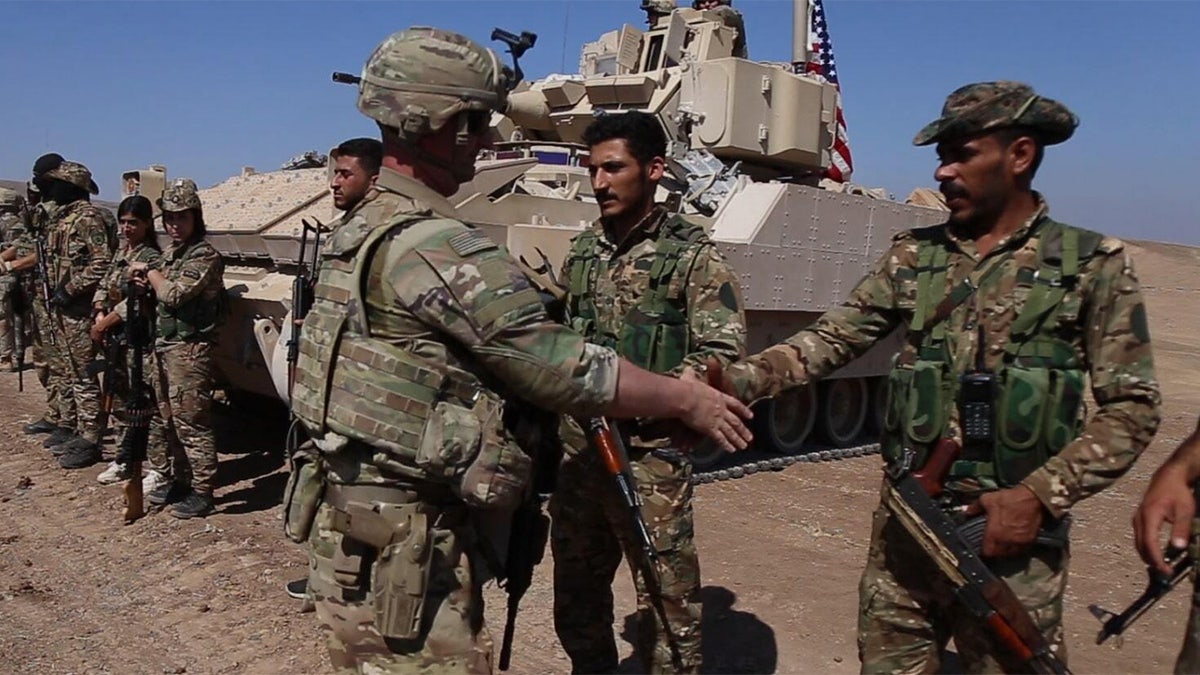Share this @internewscast.com
Just half a year after the Trump administration announced plans to reduce U.S. military presence in Syria, the Biden administration confirmed it would similarly decrease the number of U.S. troops in Iraq, following a new agreement. Security experts caution this decision could empower Iran and its “shadow empire.”
Following the Trump administration’s announcement to pull back U.S. troops from Syria, the Biden administration affirmed this week that it will also cut down troop numbers in Iraq. Experts warn this decision may fortify Iran’s influence and its “shadow empire.”
The changes have come amid a perceived reduction in threat from the terrorist network ISIS and a growing U.S. desire to end “forever wars.”
“They exert significant control within the Iraqi government and dominate a substantial block in the Iraqi parliament. These militias also wield economic power,” Roggio remarked. “Iran structured these militias similarly to Hezbollah, aspiring for them to evolve like Iran’s Islamic Revolutionary Guard Corps ultimately.”
Both Roman and Roggio voiced concerns about the U.S. troop withdrawal from the region, particularly noting the adverse effects of diminished U.S. influence as Iran seeks to challenge Washington and its objectives.
“We haven’t internalized the lessons from Afghanistan or even Iraq,” Roggio commented. “Whether we have 100 or 100,000 troops in Afghanistan or elsewhere, do we have the right forces to accomplish the missions assigned to them?
“We focus on troop numbers without addressing our mission in Iraq. Is it directed at countering ISIS or curbing Iranian influence?”
“And do we have the right mixture of military and diplomatic and political and economic influence in Iraq to achieve those goals? I don’t believe we do.”

U.S. forces provide military training to members of the YPG/SDF, which Turkey considers an extension of PKK in Syria, in the Qamisli district in the Al-Hasakah province, Syria, Aug. 18, 2023. (Hedil Amir/Anadolu Agency via Getty Images)
Both experts pointed out that the U.S. has a long history of not taking Iran and the threat it poses seriously enough, a problem that has spanned decades across both Republican and Democratic administrations.
“The Iranians are patient. They’re operating on timeframes of decades and generations. And we aren’t patient. We operate in timeframes and two and four-year election cycles,” Roggio said. “Ultimately, Iran is looking to drive the U.S. from the region and expand its influence in neighboring countries, be it Afghanistan, be it Iraq, be it the Gulf states.
“The ultimate goal is to get the U.S. out so it can expand its influence.”

















